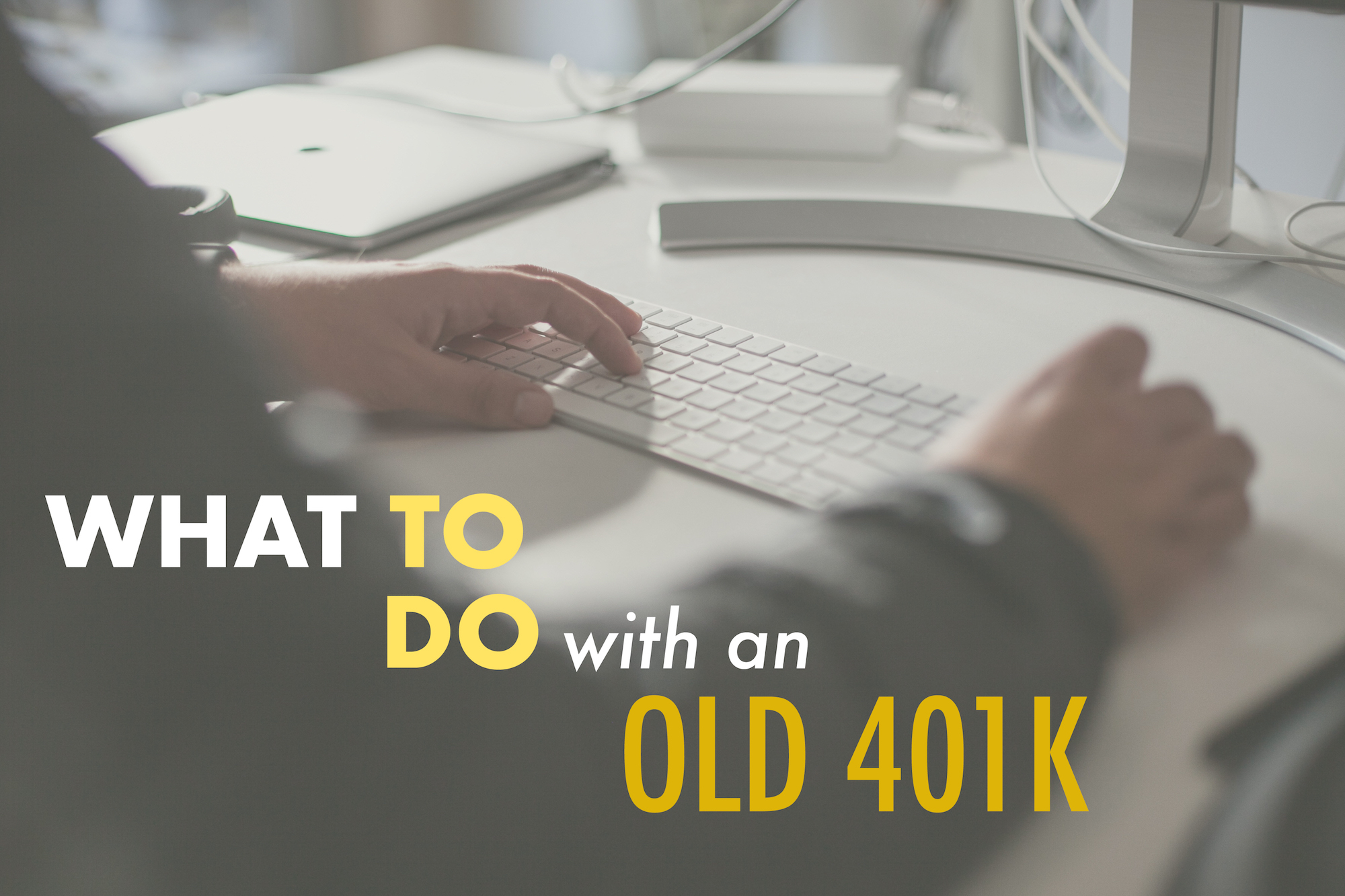What Should You Do With That Old 401(k)?

If you have money in a retirement plan at a previous employer, what should you do with it? Assuming your balance is in a plan like a 401(k) or 403(b) defined contribution plan, you have three basic choices:
1. Leave it with the old plan.
Some people don’t realize that most retirement plans allow you to leave your old account active long after you’ve left a company. Though no new contributions can be added, the investment custodian is usually more than happy to keep you as a customer.
- Advantages of leaving your 401(k) at the old employer: Your investments might be easy to administer, and no rollover transactions need to take place. Your 401(k) may also offer better creditor protection than other options.
- Disadvantages of leaving your 401(k) at the old employer: You may not like the investment options available or the fees of the old retirement plan. Some are also not comfortable with the account being tied to their previous employer.
- Why you might leave it alone: 401(k)s offer a feature unavailable in individual accounts (IRAs): if you’ve lost or quit your job after age 55, you’re allowed to take distributions from a 401(k) without penalties. Most other retirement accounts have restrictions in place until the account holder turns 59 ½. There are other special advantages for those who own their old company’s stock in a 401(k) or who were ministers with a housing allowance contributing to a denominational plan.
2. Roll it into an IRA
An IRA is a retirement account that is independent of any employer. These can easily be opened at custodians like Schwab or Fidelity.
- Advantages of rolling your 401(k) into an IRA: A rollover opens up much broader opportunities for investing beyond any one company plan’s limitations. Depending on the old plan, you may also be able to reduce the expenses you were paying to custodians or mutual funds.
- Disadvantages of rolling your 401(k) into an IRA: You’re now more responsible for investment selections and maintenance. Some tax planning strategies, like the Backdoor Roth, are not available for investors who have balances in a rollover IRA. If not done correctly, rollover mistakes can mean costly penalties or taxes.
- Why you might roll it over: Rolling over the old plan may consolidate accounts and provide simplicity, especially if you work with a financial planner who can take care of the investment management.
3. Roll it into your current employer’s plan
If your current employer has a retirement plan, you may be allowed to bring the old balance over to this newer plan. Most people don’t realize this is even an option to consider.
- Advantages of rolling it into your current 401(k): If your current 401(k) is a low-cost plan with good investment options, combining accounts will provide for easier management and access. Avoiding an IRA could keep open the possibility of the Backdoor Roth strategy mentioned above. Your employer may also offer in-plan access to an investment professional who can help you make selections.
- Disadvantages of rolling it into your current 401(k): You have little control over how your retirement plan is administered. If costs or investments change, you may not have the option to roll anything out of your plan until you’re no longer at this employer.
- Why you might roll it into the new plan: If your current company has a good plan and provides access to professional help, you may enjoy the benefits of having your retirement funds under one roof.
Before making a final decision, it’s best to weigh all the options. Talking to a financial planner is a great idea, but make sure you understand how the professional is compensated so you understand what their motivations could be. Someone who is paid based on mutual fund commissions or managing an account balance may be biased toward a rollover to an IRA, even if the rollover is not the most advantageous. At Sound Stewardship, for example, our fee is based on overall net worth, so we’re not paid any differently whether the balance is in a 401(k) or an IRA. The most important thing is to make a decision based on what suits your situation best.
< Back to Updates

